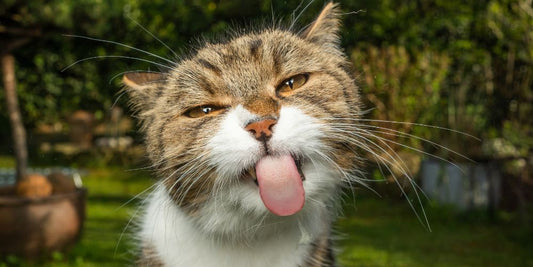Unlike intestinal worms, heartworm disease is spread by infected mosquitoes carrying a heartworm larvae. If a pet is infected, it can cause significant damage to its heart, lungs, and other organs – so it’s of utmost importance for pet owners to understand the risks and know the steps to prevent infection! Knowing how to protect your furry friend from this nasty and potentially fatal illness can be key to ensuring that they have a long and healthy life by your side.
Symptoms
In dogs, heartworm disease can cause a variety of symptoms, including coughing, fatigue, difficulty breathing, and weight loss. If left untreated, it can lead to heart failure and death. If you’d like to learn more about signs of this disease in dogs here are 7 ways to know if your dog has heartworm.
Heartworm disease in cats differs slightly from that in dogs. If a cat is infected, their immune response generally protects them from the larvae developing into adult heartworm by killing them at the early stage. Symptoms in infected cats can be similar to symptoms of infected dogs, however, diagnosis may be more involved than a simple blood test as it may include chest x-rays or heart ultrasounds.
Where is it found?
Heartworm is most commonly found in the warmer climates of Australia, or in locations with higher mosquito numbers. It is also found in tropical and subtropical areas in the country, but it has recently been shown to have increased infection rates in the southern states.
How to protect your pets
Whether you live in one of these higher-risk areas, or somewhere else, preventing heartworm disease is essential for your pet's health. Preventative medications are the most effective and low-cost way to protect your pet from heartworm disease.
In addition to preventative medication, there are other steps that you can take to reduce the risk of heartworm infection. Mosquitos are the primary cause of heartworm transmission, so mosquito control is important. Make sure your home isn’t a breeding ground for mosquitos; remove any sources of still water where they may lay eggs. Keeping pets indoors during peak mosquito hours (dusk and dawn) can also help to reduce the risk of infection.
Heartworm and other pet parasites can seem daunting and worrisome, we know! But with proper care and preventative measures, it is possible to keep pets safe from this dangerous parasite. Pet Lovers Club delivers complete pet protection from heartworms, fleas, ticks, and worms straight to your door, so your pet stays protected and healthy, 365 days a year! If you’d like to learn more about why you should protect your pets, you can read more here.






